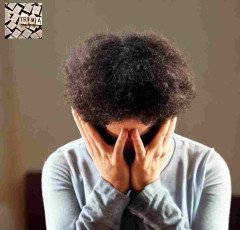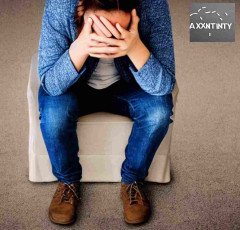
What is Trauma and post-traumatic stress disorder ?

Trauma is a distressing, overwhelming occurrence or set of events that can cause both physical and emotional injury. Accidents, natural disasters, physical or sexual abuse, combat, or other traumatic situations are just a few of the many things that can trigger trauma. The psychological and emotional health of a person can be greatly impacted by traumatic occurrences.
A traumatic experience can cause post-traumatic stress disorder (PTSD), a mental health disease that can develop. Intrusive thoughts, flashbacks, nightmares, avoiding triggers, depressed mood and cognition, and hyperarousal are some of the symptoms of PTSD. A person's capacity to function in daily life, as well as their relationships, job, and overall quality of life, can all be negatively impacted by PTSD. Different methods, such as cognitive-behavioral therapy and medication, can be used to treat PTSD. If you have undergone a traumatic event or are exhibiting PTSD symptoms, it is crucial to get expert assistance.
Anyone who has gone through or witnessed a terrible event, such as a member of the armed forces, a first responder, a victim of sexual or physical assault, a victim of a natural catastrophe, or someone else, can develop post-traumatic stress disorder (PTSD). PTSD is a complicated condition, and each person will experience it differently.
Symptoms of PTSD are often recognized when they last for more than a month and make it difficult to go about regular tasks. It is crucial to remember that not everyone who suffers a traumatic event will acquire PTSD, and some people may experience symptoms that appear later than others.
Cognitive-behavioral therapy (CBT), exposure therapy, and eye movement desensitization and reprocessing (EMDR) are a few of the therapies that may be used to treat PTSD. Family and close friends' support can be quite helpful in the healing process.
It is crucial to seek help from a mental health professional if you or someone you love is suffering from PTSD symptoms. Treatment can aid with symptom relief and life quality enhancement.
Some self-help techniques can be helpful in controlling PTSD symptoms. These consist of -
Exercise
Regular exercise has been demonstrated to lessen the feelings of depression and anxiety, which are frequent PTSD symptoms. Exercise can help with sleep, which can be disturbed in PTSD sufferers.
Use relaxation methods
Yoga, meditation, and other forms of deep breathing can all help you feel less stressed and anxious.
Connect with others
PTSD symptoms can be made worse by social disengagement and isolation. Spending time with family and friends or participating in support groups can help create feelings of social support and lessen feelings of loneliness.
Avoid using drugs and alcohol since they might hinder healing and make PTSD symptoms worse.
In order to create a thorough treatment plan, people with PTSD should seek the assistance of a mental health professional. It is crucial to highlight that these tactics are not a replacement for professional treatment.
People with PTSD can manage their symptoms and enjoy happy lives with the correct care and support.
If you are exhibiting signs of PTSD, you should seek assistance as soon as you can. If ignored, PTSD can contribute to the emergence of other mental illnesses like depression and substance abuse disorders.
For those who have PTSD and those who care about them, there are a variety of tools accessible, including support groups, hotlines, and online discussion boards. Two resources that offer knowledge and assistance to those with PTSD and their families are the National Center for PTSD and the Veterans Affairs' PTSD Program.
Additionally, it's critical to keep in mind that rehabilitation is a process and that it may take some time. But with the correct care and assistance, PTSD symptoms can be controlled and quality of life can be raised.
It's critical to understand that asking for PTSD treatment is a sign of strength, not weakness. Although admitting that you need assistance might be challenging, doing so is an essential first step in the healing process. With the correct care and support, many people with PTSD are able to successfully manage their symptoms and have happy lives.
Reach out to a mental health professional or a crisis hotline for support if you or someone you know is going through PTSD symptoms. Treatment can aid in symptom relief, lessen the effects of trauma, and enhance general wellbeing.
It's also critical to remember that there are techniques to stop PTSD before it even starts. People who have gone through a traumatic event, for instance, can benefit from early psychological therapies like psychological first aid. This can lessen the possibility of PTSD and other mental health disorders arising.
Encouraging resilience and preventing the onset of PTSD can be accomplished by providing a supportive environment for people who have gone through traumatic experiences. This can involve giving people access to mental health services, opportunity to engage in activities that enhance their sense of control and empowerment, and social support.
PTSD affects people who haven't directly encountered a horrific event, too, it should be noted. Family members and close friends may also experience the effects of PTSD, especially if they witnessed the horrific incident or are caring for a loved one who has PTSD.
Family members and close friends may find it beneficial in these situations to look for their own support, such as through counseling or support groups. This can aid them in managing their own stress and anxiety as well as their loved one's experiences and requirements if they have PTSD.
Supporting someone with PTSD also requires showing them compassion and patience. Recovery is a process, and managing symptoms and coming up with efficient coping mechanisms can take some time and work. Consistently offering support and encouragement can significantly impact the healing process.
The complex mental health disease known as PTSD can have a big influence on a person's life. Seeking support and assistance can help control symptoms and enhance quality of life for both the individual and their loved ones.
To be aware of the possibility of PTSD co-occurring with other mental health issues such depression, anxiety, and substance use disorder. A dual diagnosis or co-occurring disorder refers to this situation.
Co-existing mental health disorders like PTSD might make it harder to control symptoms and raise the likelihood of negative outcomes like suicide. In order to recognize and treat any co-occurring issues, it's crucial to get a thorough evaluation from a mental health specialist.
Co-occurring PTSD and other mental health issues are normally treated with medication and counseling, with sometimes the addition of a personalized treatment plan that is catered to the individual's particular needs.
It's crucial to seek support from a mental health expert if you or someone you love is struggling with PTSD symptoms or a co-occurring mental health problem. People with PTSD and co-occurring illnesses can control their symptoms and enhance their general quality of life with the appropriate care and support.
There are certain self-care techniques that can be useful in managing the symptoms of PTSD and co-occurring illnesses in addition to seeking professional assistance. These consist of:
Creating a regular sleep schedule
Getting adequate sleep is important for mental health and can help with sadness and anxiety symptoms. Creating a regular sleep schedule can aid in improving sleep.
Physical activity
Studies have shown that regular exercise improves mental health and helps lessen the signs of depression and PTSD. Additionally, it can enhance general physical wellness.
Using relaxation techniques
Yoga, meditation, and other stress-reduction methods can help people feel less anxious and stressed.
Developing a social network of friends and family members can be a good way to get emotional support and lessen feelings of loneliness and isolation.
Avoiding drugs and alcohol
Using drugs and alcohol can hinder rehabilitation and exacerbate the symptoms of PTSD and other mental health issues.
Self-care techniques should be used in conjunction with therapy and medication as advised by a mental health professional; they should not be used in place of professional treatment.
PTSD and co-occurring mental health issues can be difficult to manage, but with the correct care and assistance, symptoms and quality of life can be improved.
To be aware that getting better from PTSD takes time, and there could be setbacks along the road. Even if rehabilitation seems to be taking a while, it's crucial to have patience and keep trying.
must put self-care and self-compassion first during recovering. It can be difficult and drain a lot of emotional energy to recover from PTSD. Stress can be reduced and mental health can be improved by taking the time to look after oneself and partake in activities that promote wellbeing.
Additionally, it's crucial to keep in mind that each person's road to recovery is different and that no single strategy works for everyone. A successful recovery depends on locating a treatment program and support network that work for the individual.
In general, PTSD is a complicated mental health issue that can have a big influence on a person's life. However, symptoms can be controlled and quality of life enhanced with the appropriate care, assistance, and self-care practices. Contact a mental health professional for assistance if you or someone you know is suffering from PTSD symptoms.
















 Hello Theme
Hello Theme  Only For The United States
Only For The United States  One World Collection
One World Collection  Sennheiser
Sennheiser  Artificial Intelligence
Artificial Intelligence  ELECTRONIC ACCESSORIES
ELECTRONIC ACCESSORIES  Best Selling Books
Best Selling Books  ASPINAL LONDON
ASPINAL LONDON  BEST SELLER TOP10
BEST SELLER TOP10  NordPass
NordPass  The Secret Email System
The Secret Email System  Favorite Company (Cuelinks)
Favorite Company (Cuelinks)  Hot Bags For Pain Relief
Hot Bags For Pain Relief  SOFAS
SOFAS  Unlimited access to classes on illustration, photography, design, film, music
Unlimited access to classes on illustration, photography, design, film, music  Best Robotic Vacuum Cleaners
Best Robotic Vacuum Cleaners  Top Rated From Amazon
Top Rated From Amazon  TitTok Revolution
TitTok Revolution  Men Clothing
Men Clothing  NordLocker
NordLocker  All Wireless Products
All Wireless Products  Unreal Engine 5 For Beginners Learn The Basics Of Virtual Production
Unreal Engine 5 For Beginners Learn The Basics Of Virtual Production  SEO Checklist
SEO Checklist  1150+Trendy kids coloring pages Bundle
1150+Trendy kids coloring pages Bundle  ASUS Laptop
ASUS Laptop  Best Sellers On Amazon
Best Sellers On Amazon  Acer Laptop
Acer Laptop  Creative Brief For Video Shoot
Creative Brief For Video Shoot  Online Technology Classes
Online Technology Classes  The Click Engine
The Click Engine  RPM 3.0
RPM 3.0  Amazon Best Selling Products
Amazon Best Selling Products  Graphics & Design
Graphics & Design  Women Fashion
Women Fashion  Smart Doorbell
Smart Doorbell  Best Home Appliances
Best Home Appliances  Online Marketing
Online Marketing  NordVPN
NordVPN 
















